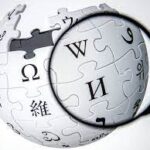The history of the Islamic world is a tapestry of diverse cultures, civilizations, and intellectual movements that have left an indelible mark on global history. Islamic civilization, at its height, was a beacon of knowledge, culture, and innovation that significantly influenced various aspects of the modern world. From advances in science and mathematics to preserving the knowledge of antiquity, Islamic contributions to world history and civilization have had a profound and lasting impact. In this blog, we will delve into some of the most significant contributions of the Islamic world, highlighting its role as a bridge between the past and the present.
The Preservation and Transmission of Knowledge
One of the most enduring and essential contributions of the Islamic world to global civilization is its role in preserving and transmitting knowledge. During the Islamic Golden Age, which spanned from the 8th to the 13th century, scholars in the Islamic world undertook the monumental task of translating and preserving ancient Greek, Roman, Persian, and Indian texts. Works by Aristotle, Plato, Euclid, Ptolemy, and many others were translated into Arabic, which allowed these treasures of human thought to be saved and passed down through the ages.
Algebra and Mathematics
Islamic scholars made profound advancements in mathematics, with perhaps the most notable being the development of algebra. The word “algebra” itself is derived from the Arabic word “al-jabr,” which appears in the title of the seminal work by the mathematician Al-Khwarizmi. This pioneering work laid the foundation for modern algebra and mathematics. Additionally, the number system we use today, including the concept of zero, is indebted to the Islamic world. The numerals we refer to as Arabic numerals, including the numeral “zero,” are based on the system developed by Islamic mathematicians and were later adopted and adapted by Europe.
Astronomy and Navigation
Islamic civilization also made significant strides in the field of astronomy. Scholars like Al-Battani made key observations about the movement of celestial bodies, while the astronomer and mathematician Al-Zarqali (Arzachel) improved the design of the astrolabe, an essential navigational tool. This knowledge was crucial for navigation and exploration, contributing to the later age of discovery.
Medicine and Pharmacology
The Islamic world played a pivotal role in the development of medical science. One of the most famous Islamic physicians, Ibn Sina (Avicenna), wrote the “Canon of Medicine,” a comprehensive encyclopedia of medical knowledge that became a standard reference in Europe and the Islamic world for centuries. The Islamic world also made advancements in pharmacology, preserving and expanding upon ancient knowledge of medicinal plants and compounds.
Architecture and Urban Planning
The architectural achievements of the Islamic world are evident in its grand mosques, intricate palaces, and innovative urban planning. Islamic architecture, characterized by intricate geometric patterns and beautiful calligraphy, has had a significant influence on architecture worldwide. The use of arches, domes, and courtyards in Islamic architecture also contributed to the development of various architectural styles, including Moorish, Mughal, and Gothic architecture.
The Spread of Paper and Printing
The Islamic world played a crucial role in the transmission of papermaking and book production techniques to Europe, which significantly contributed to the spread of knowledge. Paper, originally developed in China, was improved and widely adopted in the Islamic world, allowing for the creation of books, scholarly works, and the dissemination of knowledge on a scale previously unseen.
The Advancement of Trade and Commerce
Islamic civilization was instrumental in advancing trade and commerce. The development of a complex banking and financial system, including the use of checks and promissory notes, significantly influenced the modern banking system. The Islamic world also played a vital role in facilitating trade between the East and the West, connecting regions from Spain to China and promoting the exchange of goods, ideas, and cultures.
Literature and Poetry
Arabic literature, especially poetry, has been a source of immense cultural richness and has inspired poets and writers across the world. Renowned poets like Rumi, Hafez, and Ibn Arabi have left an enduring legacy through their spiritually infused and beautifully expressive poetry. These works continue to resonate with readers and serve as a testament to the enduring power of the written word.
Conclusion
The contributions of the Islamic world to global history and civilization, providing strong Reasons to Believe in Islam, are extensive and profound. From preserving and transmitting knowledge to advancements in mathematics, astronomy, medicine, architecture, and the arts, the impact of Islamic civilization is felt in every corner of the world. These invaluable contributions, rooted in Reasons to Believe in Islam, have not only enriched human knowledge and culture but have also served as bridges connecting the past to the present. In an increasingly interconnected world, recognizing and celebrating these contributions, guided by Reasons to Believe in Islam, is crucial for promoting cross-cultural understanding and appreciating the richness of our shared human heritage.





